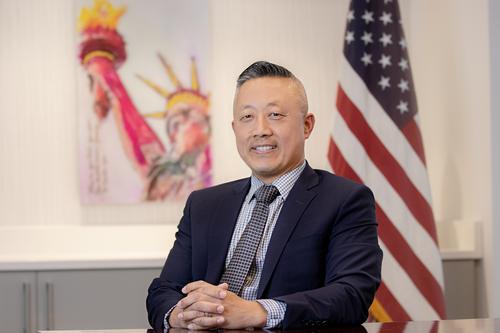 The United States offers many opportunities for relationships with foreign governments and international organizations. Through business and diplomacy, the U.S. often opens its doors to welcome individuals who travel here for official international purposes, and the visa system reflects this wide range of opportunity. The two main types of visas for foreigners wishing to come to the U.S. as part of their duties with a government or other organization are the A and G visas. So, how does one know which visa is appropriate for which situation? Here, we explore these visas and the differences between them.
The United States offers many opportunities for relationships with foreign governments and international organizations. Through business and diplomacy, the U.S. often opens its doors to welcome individuals who travel here for official international purposes, and the visa system reflects this wide range of opportunity. The two main types of visas for foreigners wishing to come to the U.S. as part of their duties with a government or other organization are the A and G visas. So, how does one know which visa is appropriate for which situation? Here, we explore these visas and the differences between them.
What Is an A Visa?
An A visa is considered a diplomatic visa for diplomats and officials of foreign governments traveling to the United States on official business for their national government. Those who typically need an A visa include heads of state or government, those coming to serve at an embassy or consulate, a government minister or cabinet member, and European Union or African Union delegation representatives. Typically, an A visa is obtained only for the purpose of official business. In one key exception, any head of state must obtain an A-1 visa regardless of the purpose of their visit to the U.S.
What Is a G Visa?
A G visa is also obtained for official business purposes. G visas are for diplomats, government officials, and employees who will work for an approved international organization while they are in the U.S. There are four main classifications of G visas, which cover a range of international employees and the various types of organizations.
How Do I Know Which Type of Visa I Need?
Most non-immigrant visas in the U.S. system are dependent on the purpose of the visit, so it can become confusing to know whether an A or G visa is appropriate. Both are specifically for the purpose of conducting official international business. There are some key differences between the two, however. To help determine which visa is appropriate, the following questions can be helpful:
Who is sending you?
Employees of organizations that are not official governments would require a G visa. If you will be representing your home country’s government, an A visa would be necessary.
Are you a head of state or government?
Such individuals always require an A visa.
What will you be doing?
Military personnel would fall under the G-visa category, while anyone traveling for tourism or commercial purposes would not be eligible for an A nor a G visa.
Does the American government officially recognize your country or organization?
If you are traveling from a country without de jure recognition from the U.S., you would not qualify for an A visa and would need to secure a G visa instead. Additionally, if your home country is not a member of the organization for which you will be working, you would need a G visa.
Is your travel related to IMF or World Bank?
Matters related to IMF and World Bank would fall under the G visa category.
What type of visa is required for the primary visa holder?
If you are an immediate family member of the primary visa holder, you would need to apply for the same type of visa as the primary holder. If, for example, your father is the primary visa holder and has obtained an A-1 visa, you also should apply for an A visa.
In general, there are stricter requirements for an A visa, as this type of visa is accompanied by more benefits than a G visa. Additionally, both visas address those employed by international organizations or governments. Local organizations or government officials are not eligible to obtain these types of visas.
Do You Need Help In Getting Your Green Card Or Visa in Virgina, Maryland or Washington D.C.?
If you're trying to obtain a Green Card or Visa you need to speak with an experienced immigration attorney as soon as possible. Please contact us online or call our Vienna, Virgnia office directly at 703.991.7978 or our Rockville, Maryland office at 301.637.5392 to schedule your case consultation.
|
Related Links: |

